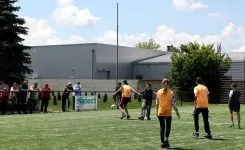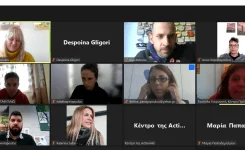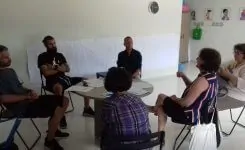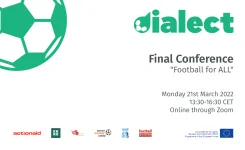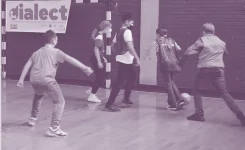Dialect News
Focus groups in Hungary
As Covid lockdown eased during the summer in Hungary, Oltalom Sport Association (OSA) could finally make face to face contacts with the participants of Dialect research target groups. During June-July OSA conducted 4 focus group discussions. A total of 24 people participated in the group discussions representing local authorities, civil society organisations and experts from the social and educational fields.
We focused on the organisations’ awareness of all issues linked to access to sport, the causes of exclusion and discrimination, and particularly on the role of football in adolescents’ life.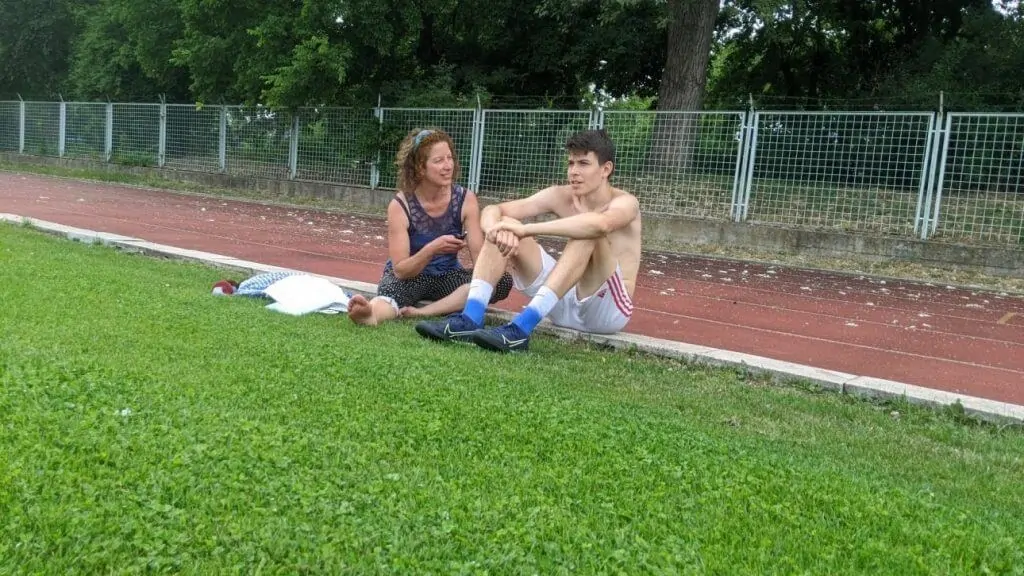
Based on results professionals (municipalities, NGOs, teachers and social workers) think that disadvantaged youth get access to sports through school and NGOs like Oltalom Sport Association. Girls’ participation in football is usually not encouraged and many times not accepted even at school. In case of migrant/refugee children football is not widely practiced before arriving to Hungary (depending on the place of origin), and migrant girls are often excluded – for religious reasons – from playing football.
Based on results, football in diverse teams, among others, has a strong integrating potential. Research also cleared up that football can particularly teach disadvantaged children how to live among rules, how to work in group and how to accept others more. Responded professionals all agreed that there is no political intention for the inclusion of disadvantaged children into club football in Hungary.
Based on their experiences, migrant/refugee children often face exclusion, jealousy, and long certification process to football clubs in professional football. Other non-migrant disadvantaged children usually drop out, as official football clubs are less tolerant e.g. regarding absence. Professionals are aware of the role extreme political groups play in football hooliganism in Hungary. However they cannot share evidences about their influence in youth football. Professionals agree that creating accepting community is one of the most important elements of equipping youth against discrimination. Neither involved municipalities nor NGOs have heard about Football3 before, but they all agree that f3 is an innovative method for reducing discrimination and strengthening acceptance.
Beside focus group discussions, OSA conducted 20 in-depth interviews with adolescents (10 adolescents with a migrant background, and 10 adolescents with a non migrant background) as part of the fieldwork of Dialect research phase. All interviews were conducted in Hungarian, and most of them took place at OSA’s regular open air football training.
Interviews cleared up that migrant and non-migrant youth in the sample are usually not attracted to Hungarian football clubs. All of them disapprove of the extreme behavior of football fans. Interviewed adolescents do not know anyone in person who belongs to such extreme circle, and none of them watch matches live anymore as violence became common at Hungarian pitches. Based on adolescents’ testimonies it seems that children’s attitudes about migrants and other disadvantaged groups (including Roma) depend on their family belief which is often fed by governmental propaganda. If parents think that it is right to be afraid of migrant/Roma people then children will find foreigners/Roma scary. Though respondent migrant youth living in Hungary for a long time do not identify themselves with migrants of the anti-migrant propaganda, more than half of them could recall stories of discrimination happened to them at school. Interviewed youth would not discriminate anyone because of origin or poorer football skills. Most of them think that their football community is accepting, but their friend’s circle is usually more excluding and judgmental.


